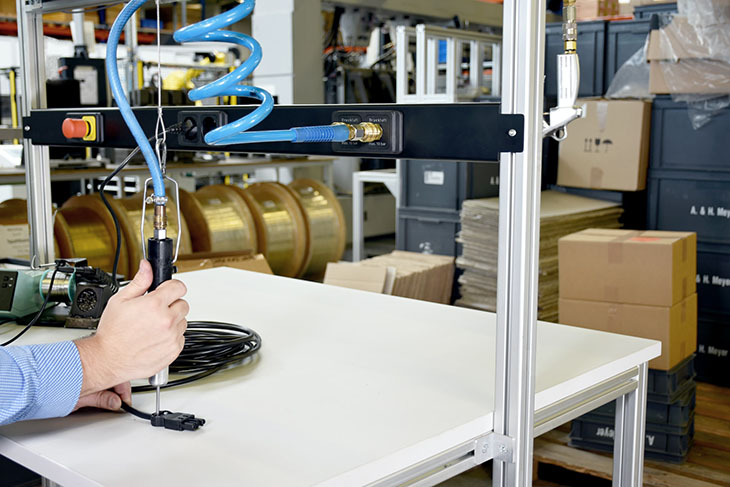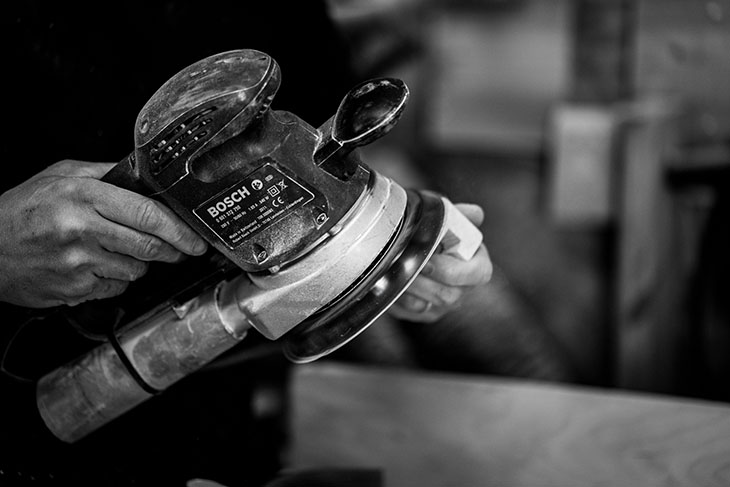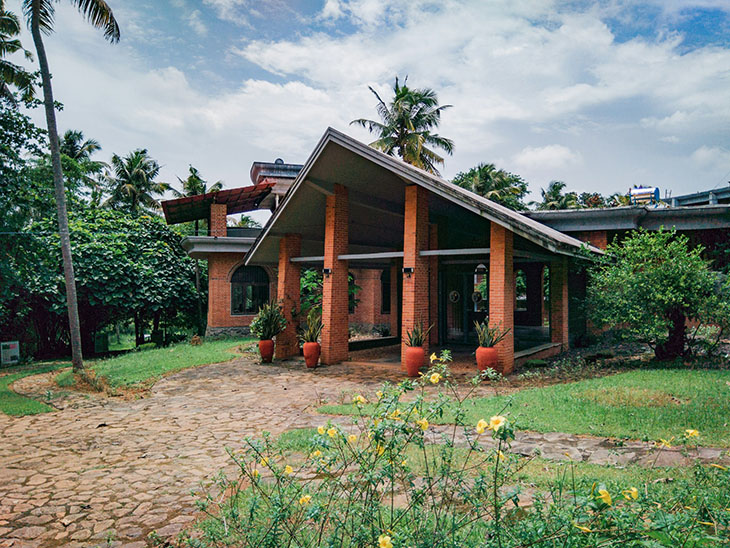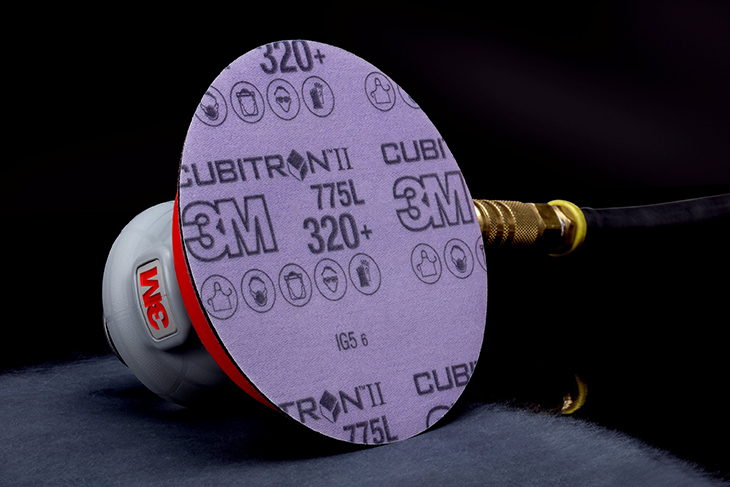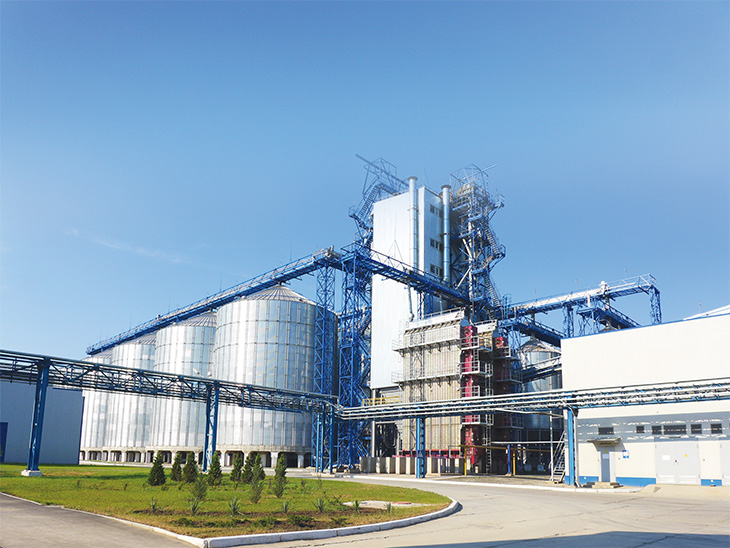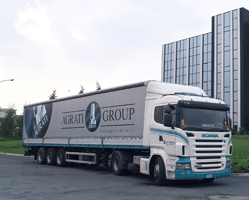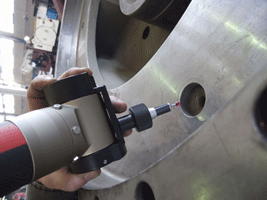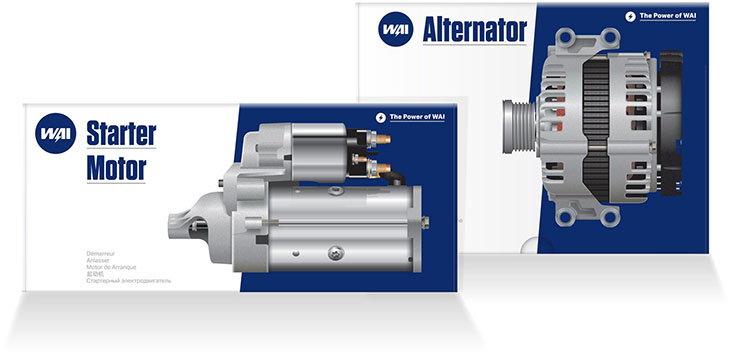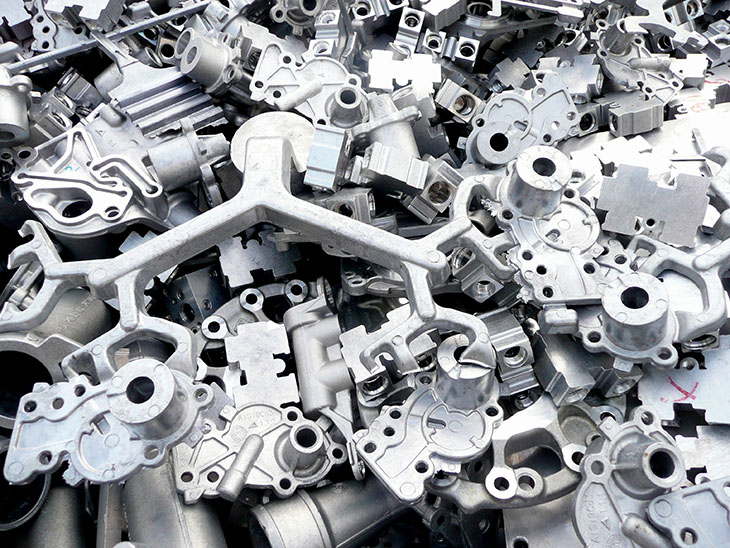Top air compressor performance relies on maintaining the best possible operating conditions. Environmental factors significantly impact the mechanical health of these units, and moisture, heat and air pollution can affect operations. Luckily, there are ways to protect air compressors from these threats and ensure consistent performance.
Environmental Threats to Air Compressor Performance
Air compressors are powerful machines, but they can be damaged by the elements just like any other tool or device. Technicians need to keep environmental factors in mind to ensure they operate effectively. A few things, in particular, can impact air compressor performance.
Temperature
Air compressor technicians know heat is bad news, especially when coupled with high humidity. High and low temperatures can cause numerous problems. Generally, most units perform best in a sweet spot between 50 and 85 F.
Performance will start to decline when temperatures rise or fall outside this window. For example, high heat can lead to increased water condensation, which is a serious issue for air compressors. Heat can also worsen other mechanical problems, leading to overheating and forcing compressors into automatic shutdown to prevent permanent damage.
Low temperatures can be detrimental to air compressor performance, as well. For example, the oil that is crucial for healthy compressor performance can start to solidify as temperatures near the freezing point. Water vapor in control lines will also condensate and eventually freeze.
Moisture that freezes throughout a compressor can cause all kinds of mechanical issues. Heat exchangers can end up clogged, parts can be stretched and cracked by expanding and contracting ice, and components like valves can even get frozen shut. Blockages may lead to overheating, which may melt some of the ice, but the cycle will keep repeating as long as moisture is present.
There are a few ways to prevent compressor damage from temperature extremes. For example, technicians can use a psychrometric calculator to measure and monitor water in the air at a certain temperature. There is less risk of damage to air compressor performance if the air is cold and dry. However, if it’s cold and wet, something will need to be done to control the compressor’s climate.
Trace heating units can also be installed on air compressors to help regulate internal temperature and prevent freezing. This is a good idea for cases where temperatures remain consistently low and can’t be easily controlled. Insulation and weatherproofing measures around the air compressor’s shelter or housing can also minimize cold exposure.
Moisture
Moisture can be a big problem for air compressors. Humidity and airborne moisture is not a friend of electrical systems or metal. Compressors left to operate for long periods in high humidity can end up with a rusted tank and pipes. This rust can even spread to the inside of the system if the intake air is moist.
Interior corrosion can be particularly concerning since it can go unnoticed for an extended period. That moisture buildup could cause water damage to electrical components and clog control lines and pipes.
Water blocking passageways in the air compressor will make it run less efficiently, leading to poor performance and overheating. This can ultimately permanently damage compressors or trigger automatic shutdown.
There are various ways to protect air compressors from exposure to excessive moisture. Humidity is naturally higher in some regions, posing a challenge for large units that can’t simply be moved indoors.
One innovative strategy is converting a shipping container into climate-controlled housing for an air compressor unit. This is a great solution for cases where indoor space is limited or the system requires its own precisely controlled environment. Conveniently, building permits are typically not needed to bring in a storage container structure.
Air Quality
Air can sometimes affect compressor performance. Air contaminated with moisture and particles can cause overheating and mechanical issues. Units that take in large amounts of contaminated air can see buildup of particulate matter like dust and dirt on the radiator and filters.
Clogged components diminish air compressor performance since the unit needs to work harder to move air around. This generates more heat, which is also not distributed efficiently due to clogged airways. As a result, dirty air can cause units to overheat and go into automatic shutdown.
One innovative solution to air quality challenges is IoT sensor technology. The risk of air compressor damage from airborne debris can go unnoticed if technicians and facility managers have no way of knowing air is polluted. IoT air quality monitoring technology can be used to measure pollution autonomously around the clock. This allows engineers and technicians to be more informed about their unit’s maintenance needs.
Airborne particulate matter is not the only air quality issue compressors face. Spacing and arrangement can impact their performance, as well. Units that are too close together risk flooding warm exhaust air from one compressor to another.
This traps the second compressor in an unnaturally warm environment since it inhales the hot air exhaled by its neighbor. Hot air is a serious long-term hazard for air compressors. It is also worth remembering that units placed close together are more likely to have debris build up between them, which could affect filters and radiators.
One clear solution to this environmental challenge is to ensure air compressors are properly spaced apart. Regular maintenance and inspections are also crucial to success. It may not be possible to control air quality, but operators can limit the damage it can do. It’s vital to regularly check on and clean out air compressors’ filters and keep an eye out for debris buildup.
Ensuring Peak Air Compressor Performance
Environmental factors play a major role in air compressor performance and their life span. The elements can damage compressors, but steps can be taken to protect units. Ensuring peak performance requires awareness of local environmental hazards, and tactics can keep compressors in the best climate possible.









